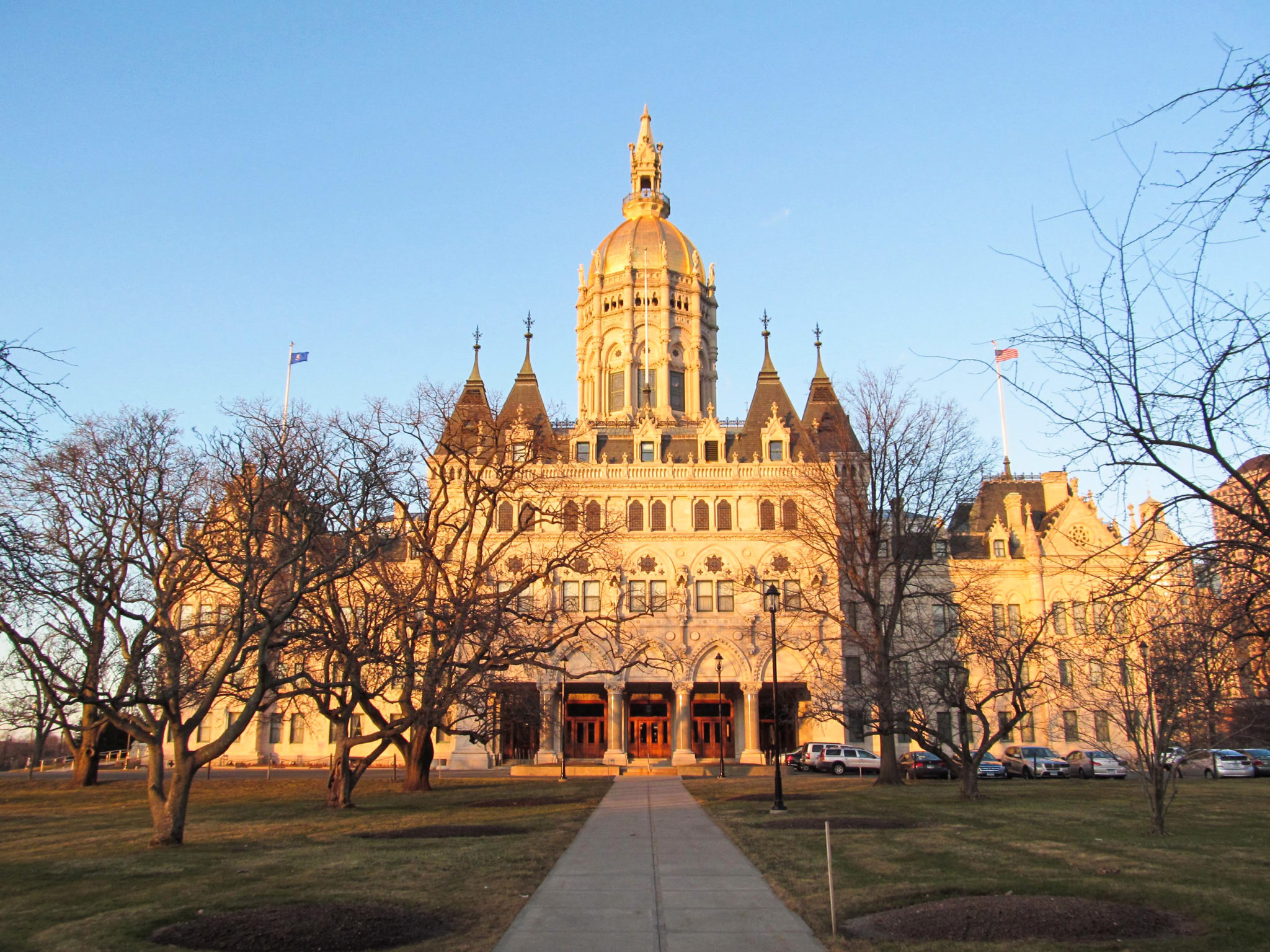
Wikimedia Commons
Following months of discussion and heated debate, Gov. Ned Lamont’s most recent Connecticut transportation proposal now appears to have the support it needs to pass, according to Lamont’s spokesperson Rob Blanchard.
A special session is likely to be called in about two weeks, during which lawmakers will vote on Lamont’s “CT2030” proposal. While details of the bill have yet to be publicly released, it is expected to spend $19.4 billion over the next ten years, a slight decrease from the original $21 billion Lamont proposed in November.
According to Blanchard, Lamont’s office is confident that the bill has the support it needs to pass. Last week, Senate President Pro Tempore Martin Looney, D–New Haven, announced that at least 18 Senate Democrats are prepared to vote in favor of the bill, which is enough to ensure its passage after it moves through the House.
Still, Lamont’s proposal lacks bipartisan support. While Lamont has held a number of meetings with Republican legislative leaders over the past year hoping for a compromise, his office is expecting only Democrats to support the proposal. On Wednesday, Senate Minority Leader Len Fasano, R–North Haven, called for Lamont to release the details of his plan for the sake of transparency.
“If Gov. Lamont is confident in his plan, why won’t he share it with the public, or at the very least the lawmakers who he is asking to vote on it?” Fasano said in his public statement. “What doesn’t he want us to know? I can only assume something is in the bill, or not in the bill, that he wants to keep away from the public.”
The issue of tolls — revenue collectors which Connecticut currently does not operate on its highways — has been a heated one since the 2018 gubernatorial election that Lamont won. Republicans have long disagreed with Lamont’s plan to use tolls to finance an expensive transportation plan. Lamont’s initial transportation proposal from this fall planned to spend $21 billion, with $320 million of these funds coming from tolls on both cars and trucks. His current plan is estimated to raise $186 million from tolls on only trucks, including at least 50 percent from out of state trucks.
Earlier this fall, Fasano proposed an $18 billion plan that would have taken $1.5 billion out of Connecticut’s “rainy-day fund” — a fund of surplus funds intended to be used in case of economic recession or emergency. Democrats largely reacted negatively to Fasano’s plan, especially in regards to his idea of dipping into the rainy-day fund. While Lamont rejected Fasano’s rainy-day fund plan, he ultimately compromised on the issue of tolls. Now, Lamont’s plan only includes tolls on trucks, as such large vehicles cause the most costly damage to highways.
Republicans have expressed concern that instituting tolls on trucks may later lead to imposing tolls on all cars in the future. Yet Blanchard refuted this idea, telling the News that this would not be easily possible due to the structure of federal funding. The Nutmeg state is relying on extremely low-interest rate federal loans — often around 0.5 percent — to pay for a substantial part of the $19.4 billion transportation plan. In order to qualify for these loans, Connecticut must demonstrate its ability to raise new funds, which it plans to achieve through tolls. The reliance on truck-only tolls is part of the state’s agreement to receive the low-interest federal loans, which means that if administrators or lawmakers suddenly decided to use tolls on cars, the state would no longer qualify for the crucial federal loans, according to Blanchard.
Last week, Lamont held a meeting with his Democratic colleagues in the House and Senate to discuss his CT2030 proposal. Following the meeting, the Governor expressed his optimism for the plans success.
“These are decisions that prior elected officials put off for decades, and Connecticut can no longer afford to kick the can down the potholed road.” He said in a Jan. 7 statement. “Over the coming days, I look forward to continuing these discussions so we can adopt a plan to finally fix our transportation system and get our state’s economy moving again, in short order.”
Some legislators have raised concerns that Connecticut could face legal issues for its tolls plan. Rhode Island recently passed a similar bill about tolls and is now in the middle of a lawsuit to determine the legality of their plan. Yet both Blanchard and Rep. Anne Hughes, D–Easton, told the News that Connecticut’s bill is substantially different from Rhode Island’s, which should ensure that the Nutmeg state can avoid a serious legal challenge.
While many Republicans have criticized the bill’s use of tolls, not all Democrats believe the bill goes far enough. Hughes told the News in an interview that Connecticut should implement tolls for cars, especially for out of state drivers, and have a more carbon-neutral focus in any transportation plan.
In particular, Hughes said she wanted to see a transportation plan focused on combating climate change and strengthening public transportation, such as train and bus systems. She said she is looking forward to finishing the drawn-out transportation discussion and working on other important projects, such as healthcare and lowering the price of prescription drugs.
“[Lamont’s transportation proposal] doesn’t go far enough and isn’t equitable enough … the earth is on fire and the world is coming crashing down on us,” she told the News. “We’ve got important things to do, so let’s get this going and move on.”
On Sunday, Lamont hosted a town hall in Westport alongside a number of lawmakers and transportation officials, during which they listened to concerns and comments about his plan from Connecticut residents. Now the Governor is waiting for the legislature to finalize a draft of the transportation bill, according to Blanchard, before a special session is likely called at the end of January.
Connecticut’s 2020 legislative session begins Feb. 5.
Emmett Shell | emmett.shell@yale.edu







